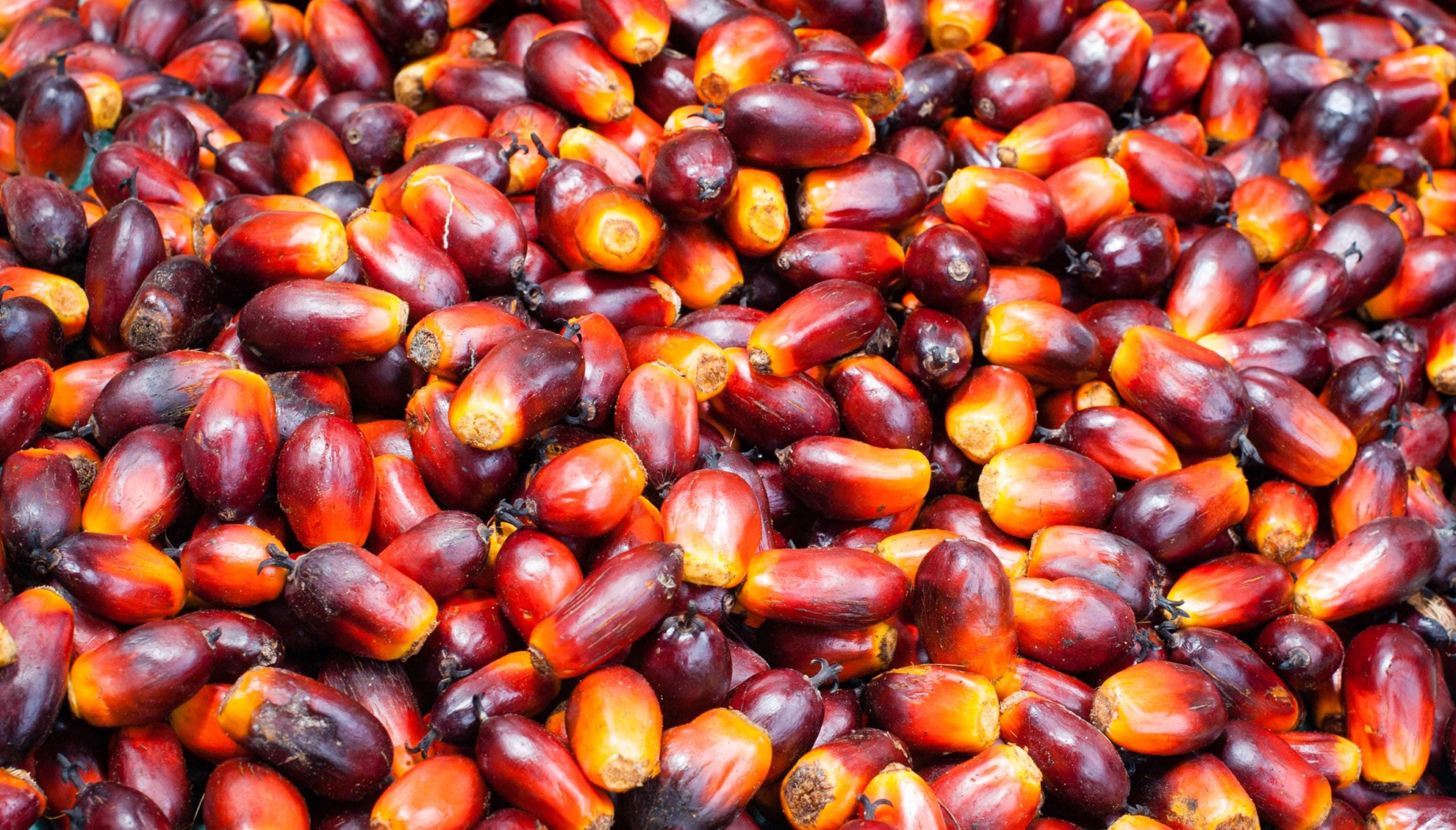Palm oil and palm kernel oil may sound very similar and both come from palm trees – but they aren’t the same product. In fact, there are some very important differences between these two oils that every consumer, restaurant owner, and chef should know. In this article, we’ll cover the difference between the two, find out which option is healthier, and much more.
Where are They Extracted From?
The main difference between these two oils is where they actually come from. Palm oil is extracted from the fruit of the palm tree itself. The palm fruit is carefully harvested, steamed, and pressed to produce a rich, dark red oil high in carotene. However, during the processing of palm oil, this carotene is refined out of the product, leaving behind a milky, creamy-textured oil.
Palm kernel oil, on the other hand, is extracted from the soft inner seeds within the fruit. These are roasted, ground and processed to release the oil. Because they each originate from different parts of the palm tree, they have chemically and nutritionally different characters, which makes them suited to particular uses.
What are Palm Oil and Palm Kernel Oil Used for?
Palm oil, or palm fruit oil, is a creamy liquid oil that’s semi-solid at room temperature. It has traditionally been used for cooking because it handles high heat very well. It’s also a common ingredient in baked goods, desserts, and sweets, adding richness and making a good alternative to margarine or butter.
Palm kernel oil solid at room temperature with a consistency that’s very similar to butter, and is chemically similar to coconut oil. It is also often used in cooking, particularly for fried foods. In addition to being used for high-heat cooking because it remains stable and is less likely to burn or cause a fire risk, it’s often used in cosmetics, soaps, personal care products, and detergents. It’s also usually cheaper than palm fruit oil.
Which Oil is Healthier?
Of course, every food should be eaten in moderation, but there are some very clear palm oil benefits that everyone should be aware of. Palm fruit oil is the healthier choice because it is trans-fat and cholesterol-free, unlike palm kernel oil which is dense in saturated fats and harmful cholesterol.
Eating foods that contain the fats that are in palm fruit oil help to prevent Vitamin A deficiency, and has been studied in connection with anti-ageing, cancer prevention, and brain health. It’s rich in antioxidants and Vitamin E, which makes it a good food for boosting the immune system. The lack of harmful cholesterol can help improve heart health too, which is critical when 7.6 million people in the UK have heart and circulatory diseases.
Unlike palm oil, palm kernel oil is high in saturated fats. Palm kernel oil has 80% saturated fat in comparison to palm oil’s 50%; a heart healthy balance between unsaturated and saturated fats. This is because saturated fats can cause cholesterol to build up in the arteries, high cholesterol, high blood pressure, circulatory problems, stroke, and heart attack risks. These saturated fats are so bad for our health that the National Health Service (NHS) recommends no more than 30g per day for men aged 19-64 and no more than 20g a day for women aged 19-24.
So, if you are looking to improve your heart health, lower your cholesterol, or help your restaurant’s clients with healthier choices, then palm fruit oil is the way to go, even though it does still contain some saturated fat.
Which Oil is More Sustainable?
Although these oils have been used for thousands of years in tropical zones of Africa and Asia, today’s market is consuming palm oil and palm kernel oil at an alarming rate. The demand for these oils is so high that many countries that produce them can’t keep up. This means that in addition to being harvested from small-scale farms, large-scale farms are on the rise. These farms and plantations are constantly growing, and landowners are burning back forests to make more space to grow these palms.
As a result, many of these countries, which have very sensitive biomes including rainforests and rare wildlife, are in severe ecological danger as demand grows far beyond sustainability. This won’t just negatively influence these countries and their biodiversity – unsustainable farming, especially in such key ecological sites – will have a lasting and devastating global impact.
This means that large-and-small scale suppliers and consumers of palm oil need to choose the most sustainable, ethical, and beneficial sources as a priority. At Frymax, we are fully compliant with the regulations and standards set by the Roundtable on Sustainable Palm Oil (RSPO). As a result, our palm fruit oil is one of the most sustainable products on the market, providing restaurants and chippies with a GMO-free, healthier and ethical source of golden, fried perfection. For more information don’t hesitate to get in contact with the helpful Frymax team.
If you’re looking for a stable frying oil that will cook your food in minutes, choose Frymax. Our sustainable, premium-grade palm oil is relied on by chippies across the country to serve up high-quality fried foods. If you’d like to learn more, get in contact with Frymax.
Become a Frymax member today to gain access to exclusive content, expert frying advice and the chance to enter our fantastic competitions.






